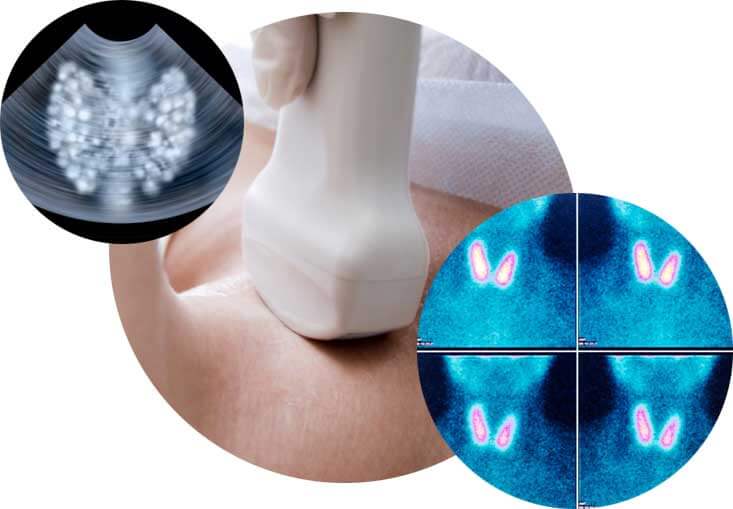Thyroiditis
What causes thyroiditis?
Many different things can cause thyroiditis, including:
Problems with the body’s infection-fighting system, called the “immune system.” If your immune system attacks healthy cells, including cells in your thyroid, it is called an “autoimmune response.”
- Pregnancy
- Medicines or radiation
- Infections
What are the symptoms of thyroiditis?
Some types of thyroiditis cause the thyroid gland to swell. Sometimes, this can also cause pain in the neck that can spread to the jaw and ears.
Most people with thyroiditis first have symptoms of hyperthyroidism. Common symptoms of hyperthyroidism include:
- Feeling weak or tired
- Losing weight, even when eating normally
- Having a fast or uneven heartbeat
- Sweating a lot and having trouble dealing with hot weather
- Feeling worried
- Trembling
The symptoms of hyperthyroidism might last for up to 6 to 8 weeks. Then, people with thyroiditis might have symptoms of hypothyroidism, which can last for 2 to 8 weeks. Common symptoms of hypothyroidism include:
- Having no energy
- Feeling cold
- Trouble having bowel movements (constipation)
In most people with thyroiditis, thyroid hormone levels return to normal within 6 to 8 months.
Is there a test for thyroiditis?
Yes. Your doctor or nurse will ask about your symptoms and do an exam. You will need blood tests, called thyroid function tests.
Your doctor might also order other tests. They include:
- Thyroid scan – For this test, you get a pill or shot with a small amount of a radioactive substance. Then a special camera takes pictures of your thyroid.
- Thyroid ultrasound – This test uses sound waves to create pictures of the thyroid.
How is thyroiditis treated?
The treatment depends on your symptoms and what caused your thyroiditis. If you do not have symptoms, you might not need any treatment. But your doctor will check your thyroid function every so often to be sure it returns to normal.
If you have symptoms, your doctor might prescribe medicines, including:
- Thyroid hormone pills
- Pain relievers such as aspirin or ibuprofen (sample brand names: Advil®, Motrin®)
- Medicines called “beta blockers,” which slow down the heart rate
- Antibiotics

